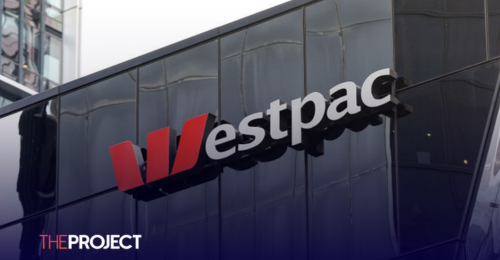A Westpac spokesperson told The Australian Financial Review (AFR) the final number of staff redundancies had not been decided.
"We adjust the composition of our workforce according to our investment priorities," he said.
"While we continue to invest in extra bankers and customer-facing roles, other programs and initiatives may need fewer resources.
"This means, from time to time, we make changes that may impact some roles and responsibilities. As the skills and capabilities required in banking continue to evolve, so will our workforce.
"We try to keep as many employees as we can, through retraining and redeployment."
New boss Anthony Miller took the top job in December. Miller is now working to overhaul the bank and cut costs.
It has been reported that Miller has asked managers to consider how they would reduce employee numbers by five per cent.
Based on the bank's current full-time headcount, a five per cent cut of staff would mean about 1,700 staff could lose their jobs.
This comes after Miller told investors he wanted to hire 180 more home finance managers and more business bankers.
Westpac shares have sold off after posting weaker than expected first-half profit, down one per cent from last year.
Australia's oldest bank was the worst performer of the big four, down more than three per cent per cent to $32.40 around 1pm AEST on Monday after it first half profit dipped to $3.3 billion, missing expectations.
Chief executive Anthony Miller touted the group's balance sheet as it navigates an economically uncertain backdrop and volatile market conditions.
"The foundations of the bank have strengthened materially over the last two decades," he said.
A common tier T1 equity ratio of 12.6 per cent was more than six percentage points higher than pre-global financial crisis levels, while the bank's deposit-to-loan ratio was at a record high of 84.5 per cent.
"These foundations will support us to navigate increasingly volatile and uncertain conditions stemming from trade and geopolitical tensions," Mr Miller said.
Recent instability due to US President Donald Trump's trade tariffs has also impacted global credit markets.
"The volatility we've seen, particularly over those last couple of months, has increased the cost of credit in the International and wholesale markets," Mr Miller said
"And so that volatility, if it continues, will mean that as and when we need to access the markets for incremental funding, we will have to pay a higher price."
However, Westpac also said there was welcome relief on the way, now that the Reserve Bank of Australia appeared to be turning into an interest rate easing cycle.
"The resilience of customers who have navigated significant cost-of-living challenges over the past few years is impressive," Mr Miller said.
"This resilience is reflected in the improvement in credit quality metrics, indicating we may have passed the low point in the cycle."
The bank's mortgage delinquencies and impairment charges remain low.
Mr Miller congratulated federal Labor on its landslide win after the weekend election, noting the clear result would be a boon for the nation.
"The continuity, the consistencies and certainty that that re-election delivers is quite profound," he said.
"It certainly sets us aside and sets us apart from many other countries around the world, given the uncertainty, and given the inconsistency of the volatility that we're seeing."
Despite the encouraging signs, there are risks to the outlook, including those flagged in Westpac's most recent consumer survey.
"Business confidence has also weakened; this could lead to softer consumer spending and business activity," Mr Miller said.
Westpac announced an interim dividend of 76 cents per share, one cent higher than the previous corresponding period.
With AAP.





























